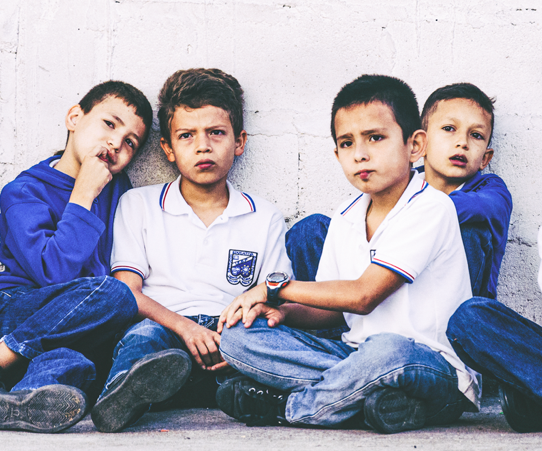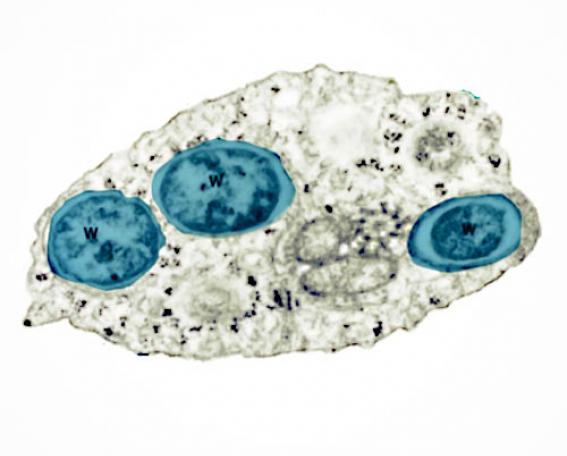
Our story is centred around a tiny bacterium called Wolbachia.
It was first described in the 1920s but little research was ever conducted on it until the 1970s.
Wolbachia was once thought to be a microorganism of insects with little consequence to human health. That notion has been overturned in recent years once it was realised that Wolbachia could prevent mosquitoes from transmitting disease causing viruses like dengue, Zika, chikungunya and yellow fever to people.
This is our story – from the discovery of Wolbachia to the progress we are making in communities around the world.
Wolbachia is discovered
Two American scientists, Marshall Hertig and S. Burt Wolbach, discover a bacterium in the common house mosquito, Culex pipiens. Following further study, Hertig later names the bacterium Wolbachia pipientis in 1936.
Wolbachia is discovered
Two American scientists, Marshall Hertig and S. Burt Wolbach, discover a bacterium in the common house mosquito, Culex pipiens. Following further study, Hertig later names the bacterium Wolbachia pipientis in 1936.
Scott O’Neill starts working on Wolbachia and dengue
Professor Scott O’Neill begins working on Wolbachia in the 1980s at the University of Queensland in Australia, and on dengue in 1991, when he takes up an academic position at Yale University in the United States in the School of Public Health.
Scott O’Neill starts working on Wolbachia and dengue

Professor Scott O’Neill begins working on Wolbachia in the 1980s at the University of Queensland in Australia, and on dengue in 1991, when he takes up an academic position at Yale University in the United States in the School of Public Health.

The 1990s decade begins, one which will see a big leap forward in our Wolbachia research and a huge discovery on how Wolbachia affects the transmission of mosquito-borne diseases...
Wolbachia is demonstrated to be an extremely widespread natural bacterial infection of insects
Wolbachia are natural bacteria present in up to 50 per cent of insect species, including some mosquitoes. Through a process called cytoplasmic incompatibility, mosquitoes infected with Wolbachia have the potential to replace uninfected host populations over several generations.
Wolbachia is demonstrated to be an extremely widespread natural bacterial infection of insects
Wolbachia are natural bacteria present in up to 50 per cent of insect species, including some mosquitoes. Through a process called cytoplasmic incompatibility, mosquitoes infected with Wolbachia have the potential to replace uninfected host populations over several generations.
Wolbachia successfully transferred between distantly related insect species
It is demonstrated that Wolbachia can be successfully transferred between distantly related insect species through embryonic microinjection.
The successful transfer of this symbiont between distantly related hosts suggests that it may be possible to introduce this agent experimentally into arthropod species.
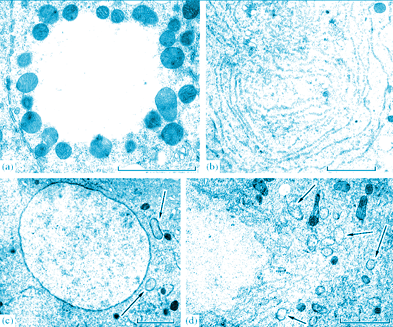
Wolbachia ‘popcorn’ strain is discovered
Seymour Benzer, a renowned molecular biologist, publishes a paper reporting the discovery of a strain of Wolbachia that can shorten the lifespan of Drosophila fruit flies.
Benzer names the strain of Wolbachia ‘popcorn’ (wMelPop). As the fly ages, the cells become packed with the Wolbachia, similar to a bag of popcorn filling up as it’s microwaved.
Professor O’Neill reads Benzer’s paper and realises that lifespan is important to the epidemiology of mosquito-transmitted diseases. He is inspired to introduce the popcorn variant into mosquito populations to shorten the lifespan of mosquitoes. This way even small reductions in mosquito lifespan could have very big impacts on human disease.

The 2000s decade begins, one that will see a generous funding grant establish the research project which would eventually evolve into the World Mosquito Program...
The 2000s decade begins, one that will see a generous funding grant establish the research project which would eventually evolve into the World Mosquito Program...
The Bill & Melinda Gates Foundation offer to help fund our work
The Bill & Melinda Gates Foundation funds our Wolbachia work through the Grand Challenges in Global Health Program.
The funding comes through a grant from the Foundation for the National Institutes of Health through the Vector-Based Transmission of Control: Discovery Research (VCTR) program of the Grand Challenges in Global Health initiative of the Bill & Melinda Gates Foundation.
The Bill & Melinda Gates Foundation offer to help fund our work

The Bill & Melinda Gates Foundation funds our Wolbachia work through the Grand Challenges in Global Health Program.
The funding comes through a grant from the Foundation for the National Institutes of Health through the Vector-Based Transmission of Control: Discovery Research (VCTR) program of the Grand Challenges in Global Health initiative of the Bill & Melinda Gates Foundation.

Vietnam partners with the program
Vietnam becomes one of the first countries outside Australia to partner with the program, under the oversight of Vietnam’s National Institute of Hygiene and Epidemiology.
Vietnam partners with the program
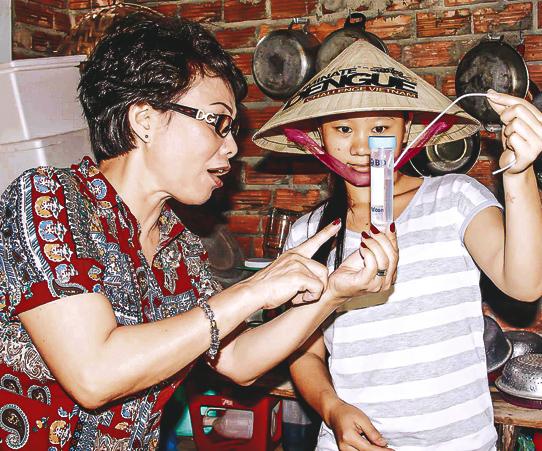
Vietnam becomes one of the first countries outside Australia to partner with the program, under the oversight of Vietnam’s National Institute of Hygiene and Epidemiology.

Cairns, Australia, starts preparing for the first field trial
The program begins engaging with community members in Cairns, Australia, to prepare for the first field trial.
Cairns, Australia, starts preparing for the first field trial
The program begins engaging with community members in Cairns, Australia, to prepare for the first field trial.
We learn that Wolbachia reduces mortality of fruit flies infected with a natural insect virus
Drosophila melanogaster flies infected with Wolbachia are less susceptible to mortality induced by a range of RNA viruses. The antiviral protection associated with Wolbachia infection might be exploited in future strategies to reduce transmission of pathogens by insects.
We learn that Wolbachia reduces mortality of fruit flies infected with a natural insect virus
Drosophila melanogaster flies infected with Wolbachia are less susceptible to mortality induced by a range of RNA viruses. The antiviral protection associated with Wolbachia infection might be exploited in future strategies to reduce transmission of pathogens by insects.
We discover that Wolbachia prevents the transmission of dengue and other human disease-causing viruses by Aedes aegypti mosquitoes
Our research team makes a crucial breakthrough. Not only do they successfully produce dengue-carrying mosquitoes that consistently pass Wolbachia to their offspring, they also make an unexpected discovery – the Wolbachia bacterium actually prevents dengue replication.
This discovery changes our research focus. We no longer need to shorten the lifespan of the mosquitoes. If the mosquitoes live their regular lifespans, they have more time to breed and pass on the Wolbachia, which stops the virus from passing from mosquitoes to humans.
This method has the potential to be self-sustaining because the mosquitoes continue to spread Wolbachia from one generation to the next, without the need to continually reintroduce new Wolbachia-infected mosquitoes.
We discover that Wolbachia prevents the transmission of dengue and other human disease-causing viruses by Aedes aegypti mosquitoes
Our research team makes a crucial breakthrough. Not only do they successfully produce dengue-carrying mosquitoes that consistently pass Wolbachia to their offspring, they also make an unexpected discovery – the Wolbachia bacterium actually prevents dengue replication.
This discovery changes our research focus. We no longer need to shorten the lifespan of the mosquitoes. If the mosquitoes live their regular lifespans, they have more time to breed and pass on the Wolbachia, which stops the virus from passing from mosquitoes to humans.
This method has the potential to be self-sustaining because the mosquitoes continue to spread Wolbachia from one generation to the next, without the need to continually reintroduce new Wolbachia-infected mosquitoes.
A life-shortening strain of Wolbachia, wMelPop, is transferred into the mosquito Aedes aegypti
The successful transfer of a life-shortening strain of the inherited bacterial symbiont, Wolbachia, into the major mosquito vector of dengue, Aedes aegypti, halved adult life span under laboratory conditions. The association is stable, and the Wolbachia strain is maternally inherited at high frequency.
Our data suggest that targeting mosquito age with inherited Wolbachia infections may be a viable strategy to reduce the transmission of pathogens such as dengue viruses.

CSIRO undertakes risk analysis of our program
The Australian Government’s Commonwealth Scientific and Industrial Research Organisation (CSIRO) undertakes an independent risk analysis of our program and finds the risks to be ‘negligible’, which is the lowest possible rating.
Subsequently, our program receives regulatory approval from the Australian Pesticides and Veterinary Medicines Authority for the first release of Wolbachia mosquitoes in Australia.

Scientific paper describes the successful transfer of wMelWolbachia strain into Aedes aegypti
The paper explains how the wMel strain (the main strain used by WMP) is transferred into Aedes aegypti and how it is shown to successfully invade field cage populations of the mosquito.
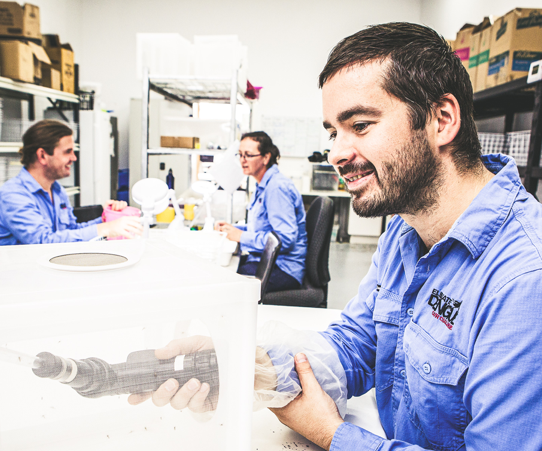
We release the first Wolbachia mosquitoes in the Cairns region
We carry out the first field releases of Wolbachia in Northern Australia and demonstrate the proof of concept that it can be deployed successfully with full community acceptance and regulatory approval.
“The field trial involved releasing Wolbachia mosquitoes every week for 10 weeks. Five weeks after the final release, it was determined that 100% of the mosquitoes at Yorkeys Knob carried Wolbachia and 90% in Gordonvale. That was a great day.” ― Professor O’Neill
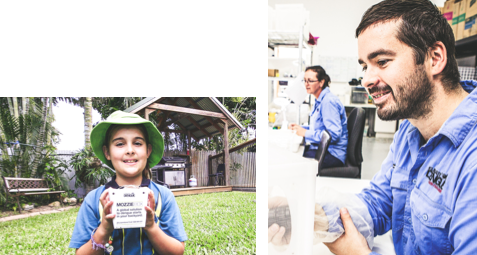
We release the first Wolbachia mosquitoes in Vietnam
The first phase of releases of Wolbachia Aedes aegypti mosquitoes took place on Tri Nguyen Island, near Nha Trang City in Khanh Hoa Province, in 2013.
We release the first Wolbachia mosquitoes in Vietnam
The first phase of releases of Wolbachia Aedes aegypti mosquitoes took place on Tri Nguyen Island, near Nha Trang City in Khanh Hoa Province, in 2013.
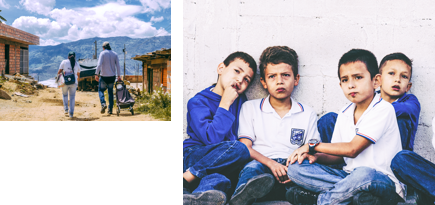
Brazil and Indonesia release their first Wolbachia mosquitoes
The first city-wide trial begins in Townsville, Australia.
Brazilian communities release their first batch of Wolbachia mosquitoes in Rio de Janeiro.
Indonesian communities release their first batch of Wolbachia mosquitoes in Yogyakarta. Yogyakarta is a densely populated city with a high prevalence of dengue outbreaks. Bill Gates visits the project site and helps to blood-feed the mosquitoes.
Vietnam’s program expands on Tri Nguyen Island, on the south-central coast of Vietnam.
Brazil and Indonesia release their first Wolbachia mosquitoes
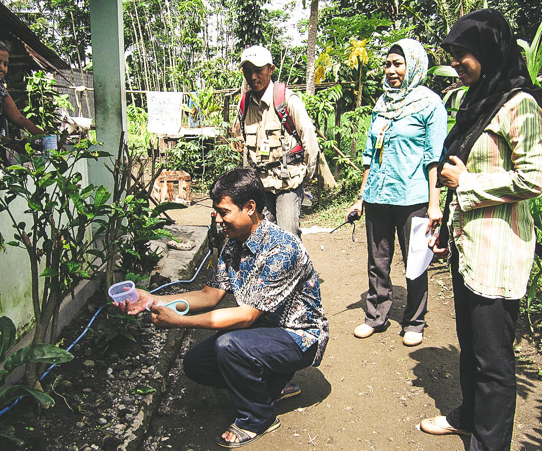
The first city-wide trial begins in Townsville, Australia.
Brazilian communities release their first batch of Wolbachia mosquitoes in Rio de Janeiro.
Indonesian communities release their first batch of Wolbachia mosquitoes in Yogyakarta. Yogyakarta is a densely populated city with a high prevalence of dengue outbreaks. Bill Gates visits the project site and helps to blood-feed the mosquitoes.
Vietnam’s program expands on Tri Nguyen Island, on the south-central coast of Vietnam.

No dengue transmission where Wolbachia is established in Cairns
Despite a dengue outbreak in the Cairns region, there are no local dengue transmissions in areas where Wolbachia is established.
No dengue transmission where Wolbachia is established in Cairns
Despite a dengue outbreak in the Cairns region, there are no local dengue transmissions in areas where Wolbachia is established.
We release the first Wolbachia mosquitoes in Colombia
In May 2015, the community of Paris, in the Bello neighbourhood, welcomed the country’s first release of Wolbachia mosquitoes.
The release came after almost two years of work in the laboratories at the University of Antioquia and extensive engagement with the local community.
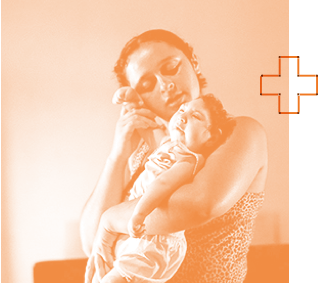
Zika outbreaks declared a Public Health Emergency of International Concern
Zika is declared a Public Health Emergency of International Concern by the World Health Organization (WHO). The WHO Vector Control Advisory Group reviews new vector control tools that could be used in response to the Zika virus outbreak. They recommend further Wolbachia pilot deployments as a potential measure to tackle this global health emergency.
The program is granted $18 million to fight Zika using our Wolbachia method. Funding is provided by a coalition including the Wellcome Trust, the US Agency for International Development, the UK Government, and the Bill and Melinda Gates Foundation.
Using the grant, we immediately begin planning for large-scale deployment.

We become the World Mosquito Program
The Eliminate Dengue Program becomes the World Mosquito Program to reflect how our Wolbachia method can prevent other mosquito-borne diseases, including Zika and chikungunya.
Sri Lanka, Vanuatu, Fiji and Kiribati form partnerships with the program.
Brazil, Indonesia, Vietnam, Australia and Colombia announce further releases.
Initial Wolbachia mosquito releases take place in Suva, Fiji
After conducting laboratory studies to examine the impact of Wolbachia on dengue and chikungunya viruses in Fiji, and engaging with the community to explain our Wolbachia method and gain their acceptance, we released Wolbachia mosquitoes across the Lami, Suva, Nakasi corridor in 2018–19.
The Townsville trial is successful and we deploy mosquitoes using unmanned aerial vehicles in Fiji
We publish a research paper that shows our Townsville trial is successful – there have been no locally transmitted dengue cases over the previous four rainy seasons, since Wolbachia was established in the targeted release areas.
We partner with WeRobotics to conduct our first-ever unmanned aerial vehicle (drone) trial to release Wolbachia mosquitoes in Fiji.
New Caledonia and Mexico form partnerships with the World Mosquito Program.
Further releases are announced in Northern Queensland, Australia, and for the first time, local health authorities lead the implementation of the Wolbachia method, with our technical support.
The Townsville trial is successful and we deploy mosquitoes using unmanned aerial vehicles in Fiji
We publish a research paper that shows our Townsville trial is successful – there have been no locally transmitted dengue cases over the previous four rainy seasons, since Wolbachia was established in the targeted release areas.
We partner with WeRobotics to conduct our first-ever unmanned aerial vehicle (drone) trial to release Wolbachia mosquitoes in Fiji.
New Caledonia and Mexico form partnerships with the World Mosquito Program.
Further releases are announced in Northern Queensland, Australia, and for the first time, local health authorities lead the implementation of the Wolbachia method, with our technical support.
We release the first Wolbachia mosquitoes in Vanuatu
Between July 2018 and March 2019, Wolbachia mosquitoes were released across Port Vila and surrounding areas, reaching a population of more than 50,000 people.
We release the first Wolbachia mosquitoes in Vanuatu
Between July 2018 and March 2019, Wolbachia mosquitoes were released across Port Vila and surrounding areas, reaching a population of more than 50,000 people.
The Wolbachia method can fight yellow fever
New research from Brazil confirms our Wolbachia method limits yellow fever transmission in Aedes aegypti mosquitoes, reducing the threat of urban disease outbreaks. Our method has now been shown to be effective against four mosquito-borne diseases: dengue, Zika, chikungunya and yellow fever.
A new study in Nature Microbiology finds that, due to climate change, half the world’s population could be at risk of contracting mosquito-borne diseases by 2050.
We announce that there have been no locally acquired cases of dengue in Cairns for the past 5 years, in areas where we'd released Wolbachia mosquitoes. This also shows our method can be deployed at a city-wide scale.
Brazil announces further large-scale releases.
Fiji and New Caledonia commence further releases.
The Wolbachia method can fight yellow fever
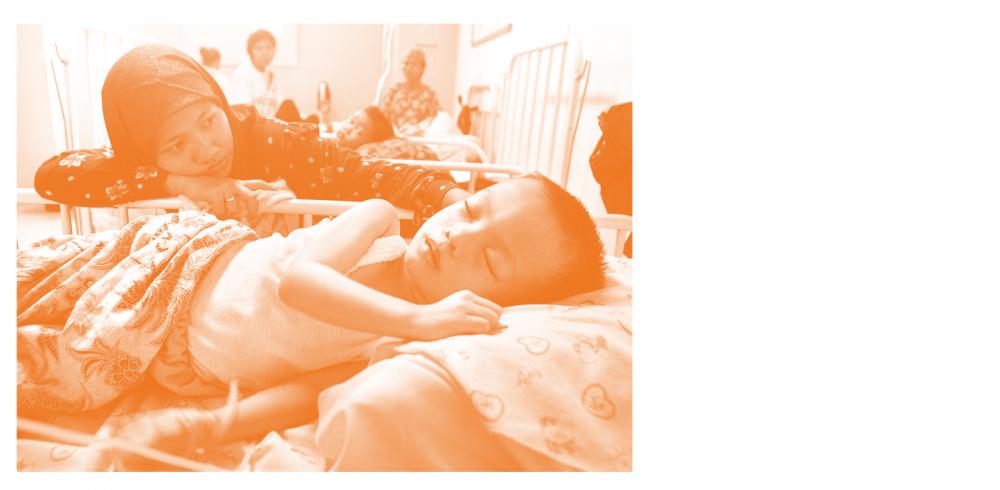
New research from Brazil confirms our Wolbachia method limits yellow fever transmission in Aedes aegypti mosquitoes, reducing the threat of urban disease outbreaks. Our method has now been shown to be effective against four mosquito-borne diseases: dengue, Zika, chikungunya and yellow fever.
A new study in Nature Microbiology finds that, due to climate change, half the world’s population could be at risk of contracting mosquito-borne diseases by 2050.
We announce that there have been no locally acquired cases of dengue in Cairns for the past 5 years, in areas where we'd released Wolbachia mosquitoes. This also shows our method can be deployed at a city-wide scale.
Brazil announces further large-scale releases.
Fiji and New Caledonia commence further releases.

We release the first Wolbachia mosquitoes in Mexico
Beginning in January 2019, Wolbachia mosquitoes were released across La Paz. Mexico is the first country in Central America to collaborate with the World Mosquito Program.
We release the first Wolbachia mosquitoes in Mexico
Beginning in January 2019, Wolbachia mosquitoes were released across La Paz. Mexico is the first country in Central America to collaborate with the World Mosquito Program.
We release the first Wolbachia mosquitoes in the Central Pacific archipelago, Kiribati
In 2019 we gained community acceptance and we released Wolbachia mosquitoes across South Tarawa and Betio.
We release the first Wolbachia mosquitoes in the Central Pacific archipelago, Kiribati
In 2019 we gained community acceptance and we released Wolbachia mosquitoes across South Tarawa and Betio.
Wolbachia mosquitoes releases begin in New Caledonia
After conducting laboratory studies to examine the impact of Wolbachia on dengue and chikungunya viruses in Nouméa, and engaging with the community to explain our Wolbachia method and gain their acceptance, we began releases of Wolbachia mosquitoes across Nouméa in July 2019.
We expand releases across northern Australia and demonstrate that local dengue transmission is stopped
Short-term releases of Wolbachia mosquitoes were undertaken up to 8 years ago in some communities – monitoring in these areas has shown that Wolbachia has remained in the local mosquitoes during this time, without the need for further releases. Importantly, there has been reduced dengue transmission in these areas, with a 93 per cent reduction in reported dengue cases. It follows the 5-year success of the WMP method in the city of Townsville.
“Far North Queensland is now essentially a dengue-free area for the first time in well over 100 years,” says Dr Richard Gair, Director and Public Health Physician, Tropical Public Health Services Cairns.
First release of Wolbachia mosquitoes in Sri Lanka
After more than two years of preparation, training and community engagement activities, field teams, project partners and community leaders celebrated the first launch of Wolbachia mosquitoes in Colombo, Sri Lanka.
The pilot project is the first of its kind in the country and aims to help quell the impact of a dengue epidemic that has emerged as a serious public health concern in Sri Lanka.
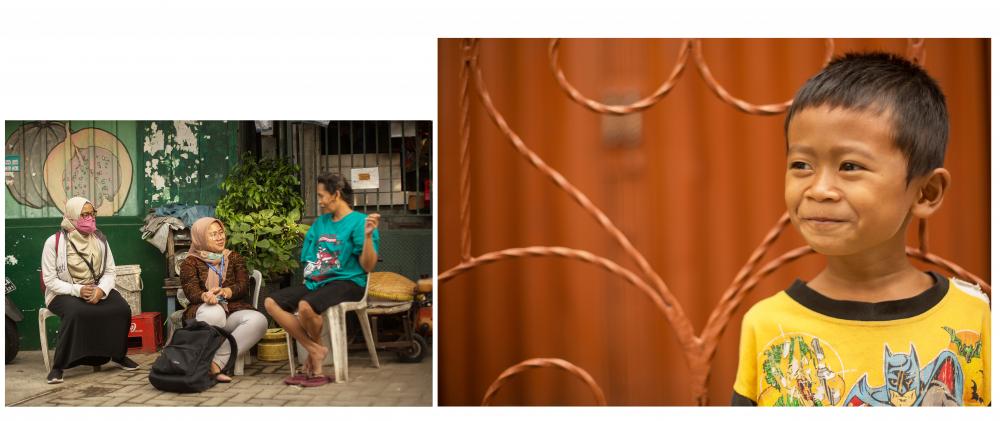
Results announced from Randomised Controlled Trial, Yogyakarta
The World Mosquito Program, together with our Indonesian partners the Tahija Foundation and Universitas Gadjah Mada announce the first results of a cluster randomised controlled trial of our Wolbachia method, showing a 77% reduction in the incidence of virologically-confirmed dengue in Wolbachia-treated areas of Yogyakarta, Indonesia, compared to untreated areas.
This is welcome news for the Yogya community and a significant breakthrough for us as we move closer to our target of protecting 500 million people by 2030.

RCT results peer reviewed and published in New England Journal of Medicine
In June 2021, the New England Journal of Medicine published the peer reviewed results of the Yogyakarta trial which show that Wolbachia deployments reduced dengue incidence by 77% and dengue hospitalisations by 86%.
We opened our new laboratory facility at Monash University
In April, we were proud to present the opening of our new laboratory at Monash University. The facility is capable of producing tens of millions of Wolbachia mosquito eggs per week.
We opened our new laboratory facility at Monash University
In April, we were proud to present the opening of our new laboratory at Monash University. The facility is capable of producing tens of millions of Wolbachia mosquito eggs per week.
Our Wolbachia method now protects more than 10 million people worldwide.
In August 2022, we announced our landmark achievement. Our Wolbachia method now protects more than 10m people, but it’s just the beginning. We have bold plans to reach new communities, cities and countries with our transformative solution.
Our Wolbachia method now protects more than 10 million people worldwide.
In August 2022, we announced our landmark achievement. Our Wolbachia method now protects more than 10m people, but it’s just the beginning. We have bold plans to reach new communities, cities and countries with our transformative solution.
We expanded releases and announced new projects
In 2022, we expanded releases across Southern Vietnam, New Caledonia, Brazil and Colombia, announced a new project in Laos, and completed releases in Mexico and Sri Lanka.
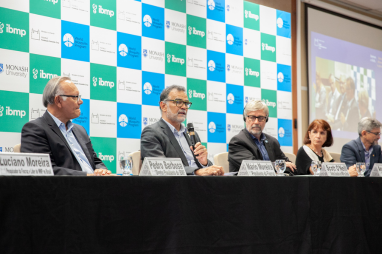
We launched a new major partnership with Fiocruz in Brazil
In March, we were excited to announce a partnership with Fiocruz that will dramatically expand access across Brazil to Wolbachia mosquitoes. It builds on years of collaboration between the two organisations and will lead to the creation of the biggest mosquito mass production facility in the world, capable of producing up to five billion disease-blocking mosquitoes each year.

Results from Colombia show dengue cases drop to 20-year low
Our joint research with the University of Antioquia is published in PLOS Neglected Tropical Diseases. It shows dengue cases have dropped to the lowest level in 20 years across Colombia’s Aburrá Valley following our large-scale releases of Wolbachia mosquitoes. Dengue incidence declines by 95-97% in Bello, Medellín and Itagüi, as our method helps protect more than 3.5 million people in the region.


